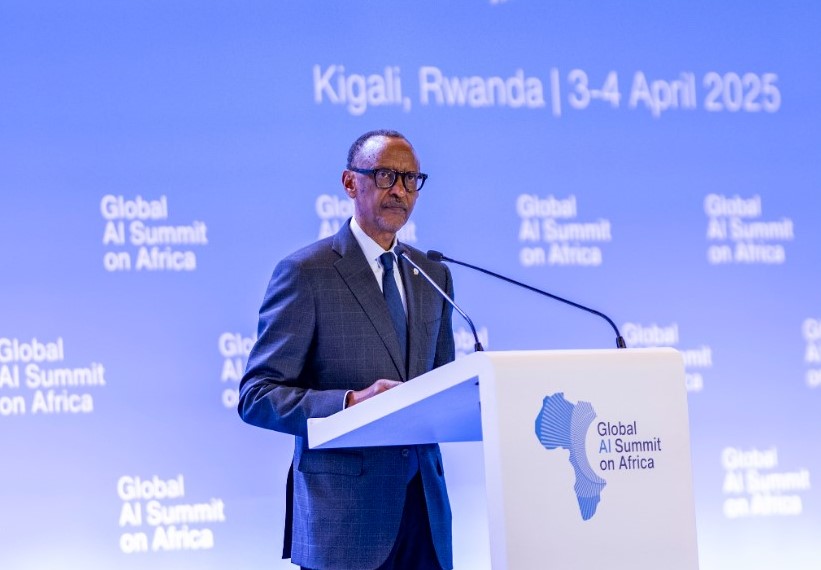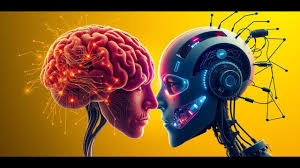Nigerian Innovator Unveils AI Breakthrough for Brain Cancer Detection!

In a significant advancement at the convergence of artificial intelligence (AI) and medicine, Tobi Titus Oyekanmi, a computer scientist and researcher affiliated with New Mexico Highlands University, has introduced a groundbreaking deep learning model. This innovation promises to transform the diagnosis and interpretation of brain cancer, particularly benefiting resource-limited regions globally. Oyekanmi's comprehensive study, titled “Deep Learning-Based Diagnosis of Brain Cancer Using Convolutional Neural Networks on MRI Scans: A Comparative Study of Model Architectures and Tumor Classification Accuracy,” details the novel LightBT-CNN system, which remarkably achieved a 98% diagnostic accuracy on MRI brain scans. Published in the American Academic Scientific Research Journal for Engineering, Technology, and Sciences (ASRJETS), this research positions Oyekanmi at the vanguard of explainable artificial intelligence (XAI) for medical imaging.
Brain cancer continues to be one of the most lethal forms of cancer worldwide, with diagnoses frequently relying on the manual interpretation of MRI scans. This conventional approach is often both labor-intensive and susceptible to human error. Oyekanmi articulated his ambitious goals, stating, “AI can help level the playing field. The goal was to build a lightweight yet powerful neural network that can analyse brain MRI scans with accuracy comparable to expert radiologists but without the need for expensive infrastructure.” This vision underscores the project’s commitment to making advanced diagnostics accessible.
To realize this objective, Oyekanmi spearheaded a multidisciplinary team, including Peter Adigun, Nelson Azeez, and Ayodeji Adeniyi. Together, they developed the LightBT-CNN, a specialized convolutional neural network designed to accurately classify four distinct tumor types: glioma, meningioma, pituitary, and healthy brain scans. The model was trained using an extensive dataset of over 7,000 MRI images. Distinctively, unlike more massive deep learning architectures such as VGG16 or ResNet50, which demand high-end GPUs, Oyekanmi’s LightBT-CNN utilizes only 3.6 million trainable parameters. This makes it exceptionally compact, cost-effective, and ideally suited for hospitals in developing countries where advanced computing infrastructure may be scarce.
Constructed using Python and TensorFlow, the LightBT-CNN model demonstrated exceptional precision and recall rates, exceeding 95% across all tumor classes. A key differentiating factor of this system is its inherent interpretability. Through the application of Gradient-weighted Class Activation Mapping (Grad-CAM), the system visually highlights the specific brain regions that most influenced its predictions. This provides clinicians with transparent and actionable insights into each diagnosis. Oyekanmi emphasized the importance of this feature, noting, “Trust is everything in medicine. If an AI can show why it made a decision, clinicians are more likely to adopt it.”
Despite being based in the United States, Oyekanmi maintains strong ties to Nigerian research networks, actively collaborating with physicist Nelson Abimbola Azeez from the University of Abuja. Their joint efforts are focused on applying AI expertise to address critical diagnostic challenges across Africa, ranging from brain tumors to pneumonia detection. Oyekanmi underscored his practical commitment, asserting, “This is not just about publishing papers. It’s about creating practical tools that improve patient outcomes and build local capacity in medical AI.” His dedication to utilizing AI for social good is further evidenced by his earlier collaboration with Adigun and Adeniyi on an AI-based X-ray interpretation system for pneumonia detection, which laid foundational groundwork for this more extensive brain cancer project.
Earlier in the year, Oyekanmi was honored with the prestigious 2025 NIPES Award for Outstanding Contribution to Research and Innovation, presented by the National Institute of Professional Engineers and Scientists (NIPES). Selected from over 1,200 nominations spanning four countries, his work was lauded for its originality, measurable impact, and strict adherence to global research standards. This recognition, announced ahead of the 2025 NIPES International Conference at the University of Benin, solidified Oyekanmi’s reputation as one of Nigeria’s most promising voices in AI-driven scientific research. Reflecting on the award, he remarked, “Recognition from NIPES means a lot to me. It reminds me that impactful research isn’t just about algorithms, it’s about improving lives.”
Experts have widely applauded Oyekanmi’s work for its successful integration of academic rigor with profound real-world relevance. The study meticulously compares LightBT-CNN’s performance against established global benchmarks like ResNet and EfficientNet, demonstrating near-parity in accuracy while requiring significantly lower computational demands. This efficiency is a crucial advantage for healthcare systems operating with limited digital infrastructure. Oyekanmi insightfully added, “AI doesn’t have to be complicated to be effective. Sometimes simplicity and efficiency matter more than brute-force computation.” While acknowledging the model's success, he also noted its current limitation: the dataset predominantly represents controlled MRI conditions, which differ from the inherent variability encountered in real-world hospital settings. Looking ahead, Oyekanmi plans to collaborate with clinical partners to rigorously validate the system using actual patient data. He also intends to explore multi-modal imaging approaches that integrate MRI with CT and PET scans. Furthermore, he is a strong advocate for establishing cross-institutional AI training programs in Nigerian universities, aiming to equip the next generation of scientists with hands-on experience in medical machine learning. He concluded, “This work reminds us that innovation isn’t confined to big tech companies. With the right vision, collaboration, and compassion, AI can become a tool for equity, helping every patient, everywhere, get the care they deserve.”
You may also like...
Why Your First Failure Might Be the Best Thing That Ever Happened to Your Business

Failure isn’t the end of entrepreneurship, it’s the education success never gives. Here’s why your first business collap...
Consumerism vs Culture: Is Africa Trading Values for Trendy Lifestyles?

Is Africa trading its cultural values for trendy lifestyles? Explore how consumerism, foreign brands, and social media p...
The War on Boys: Are African Male Being Left Behind in Gender Conversations

Why are African boys and men often left out of gender empowerment programs? Explore how emotional suppression, lack of m...
Pay Slip, Motivation Slips: The Silent Crisis Among the Working Class

Across Nigeria, millions of workers are trapped in jobs that pay just enough to survive but too little to live. Beneath ...
Premier League's Unsung Heroes: Bournemouth, Sunderland, and Tottenham Shockingly Exceed Expectations

This Premier League season sees teams like Bournemouth, Sunderland, and Tottenham exceeding expectations. Under Thomas F...
El Clasico Fury: Yamal Controversy and Refereeing Blunders Ignite Post-Match Debates
)
Real Madrid secured a 2-1 El Clasico victory over Barcelona amidst significant controversy surrounding a late penalty de...
Kate Hudson & Hugh Jackman Eyeing Oscars with ‘Song Sung Blue’ Breakthrough

"Song Sung Blue" tells the true story of Mike and Claire Sarina, who find love and acclaim as a Neil Diamond tribute ban...
Pennywise Unleashes Horror: 'It: Welcome to Derry' Premiere Shocks Viewers

HBO Max's "IT: Welcome to Derry" plunges audiences into 1962 Derry, Maine, exploring the origins of Pennywise with a bru...




